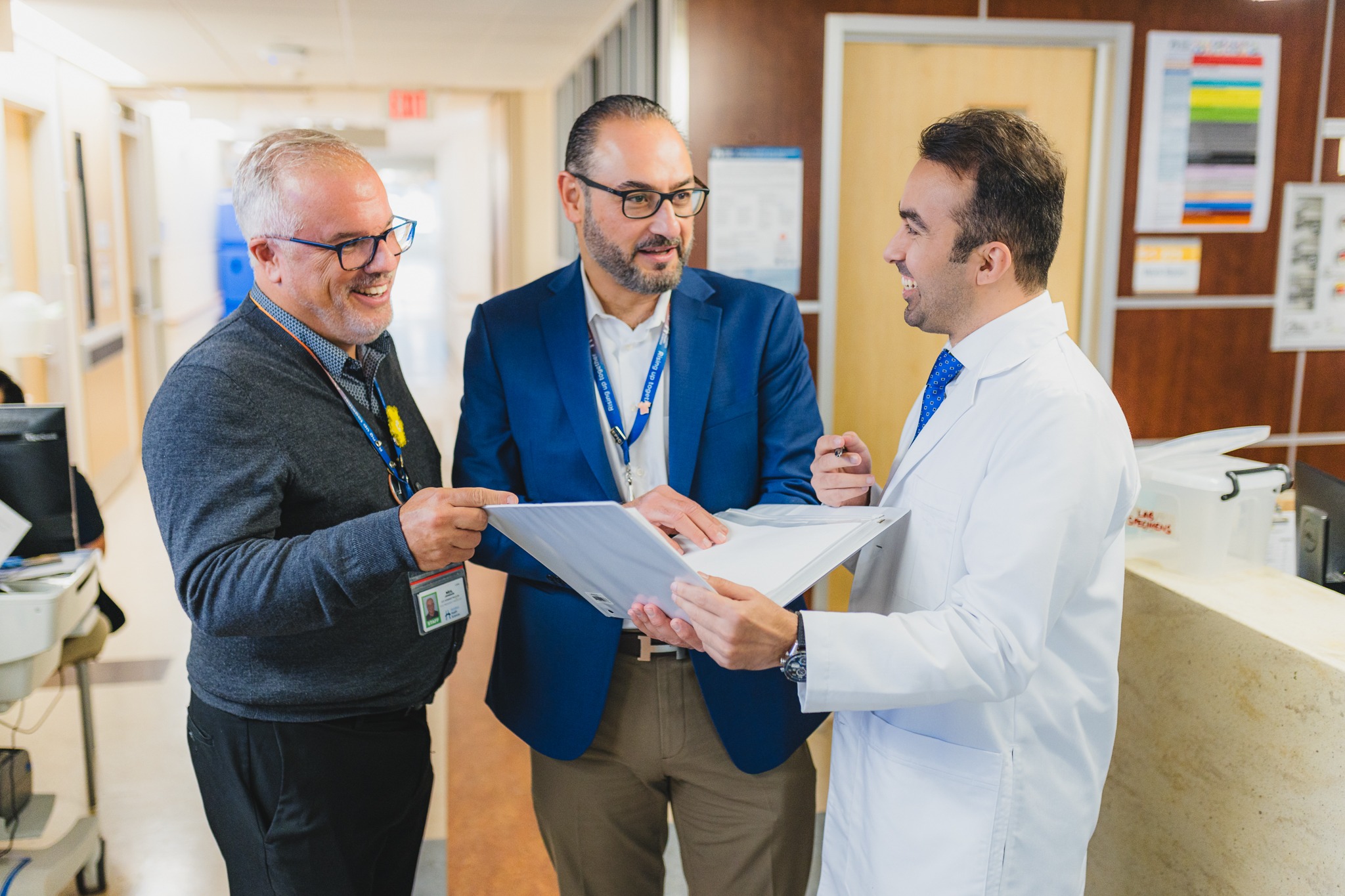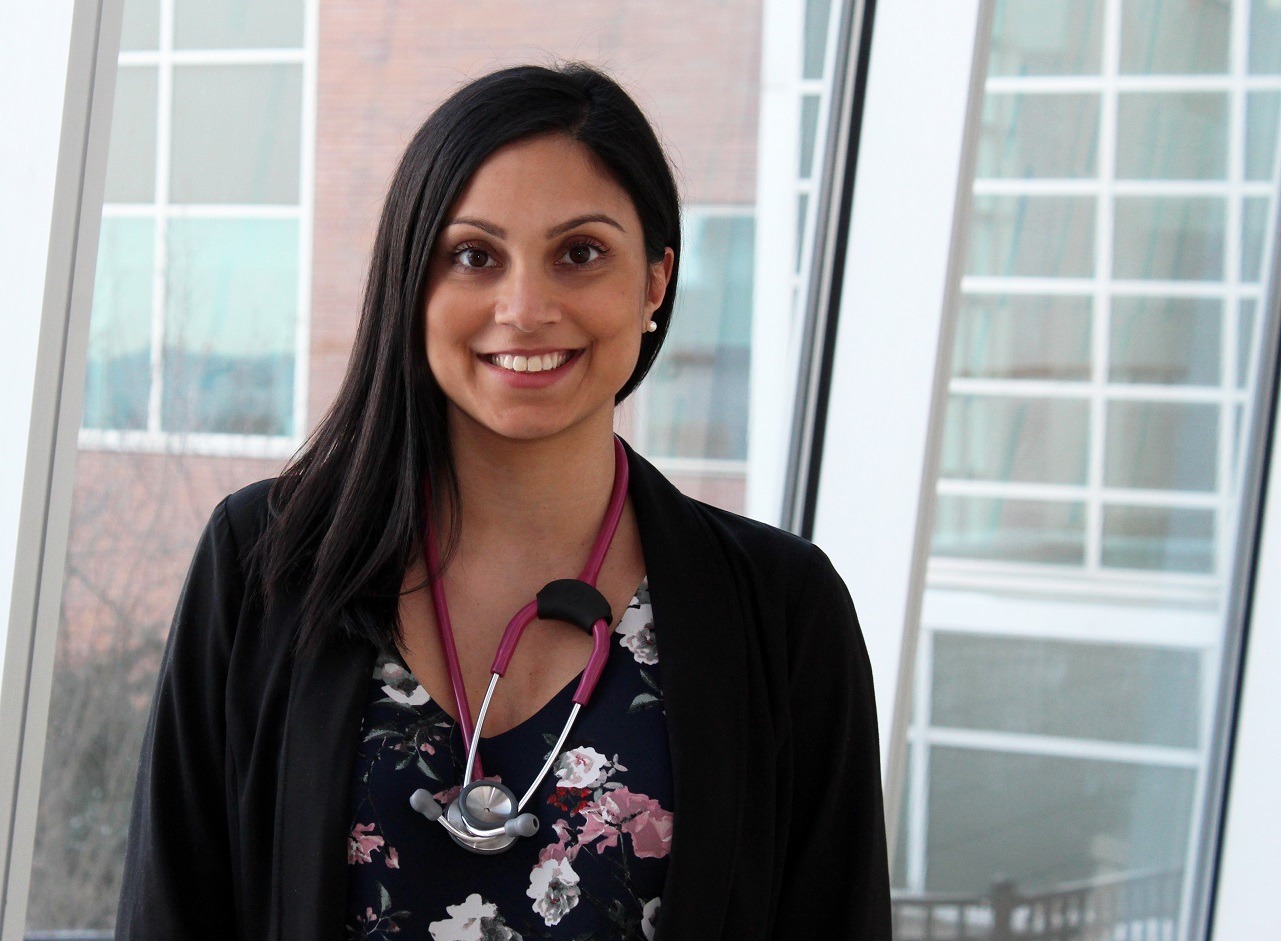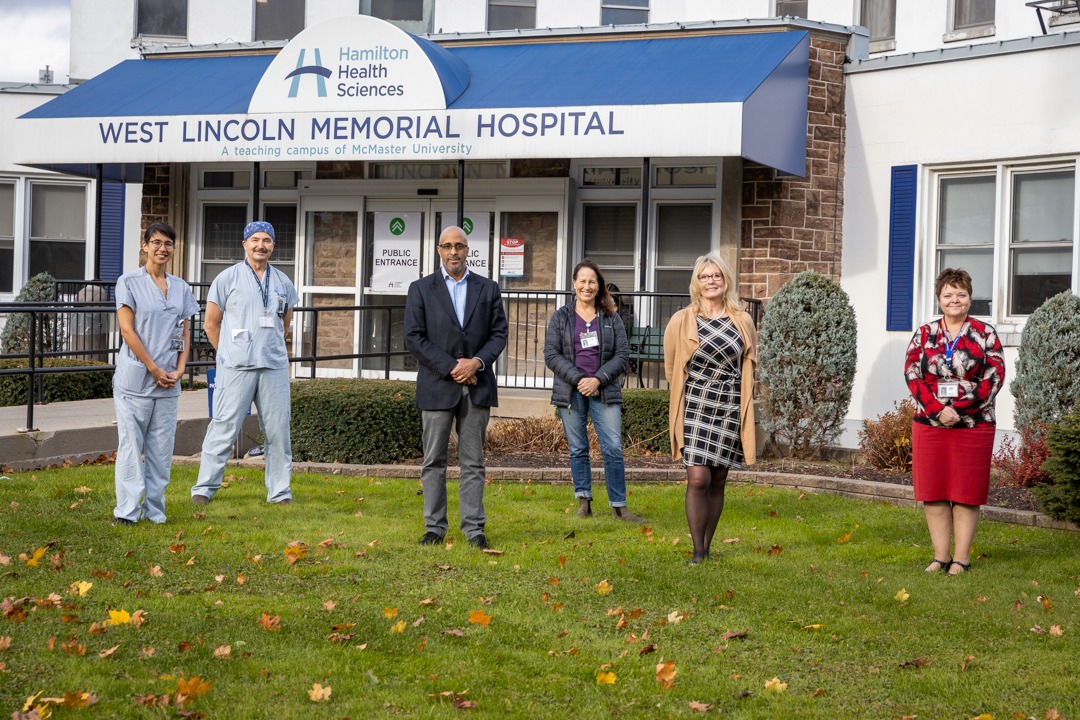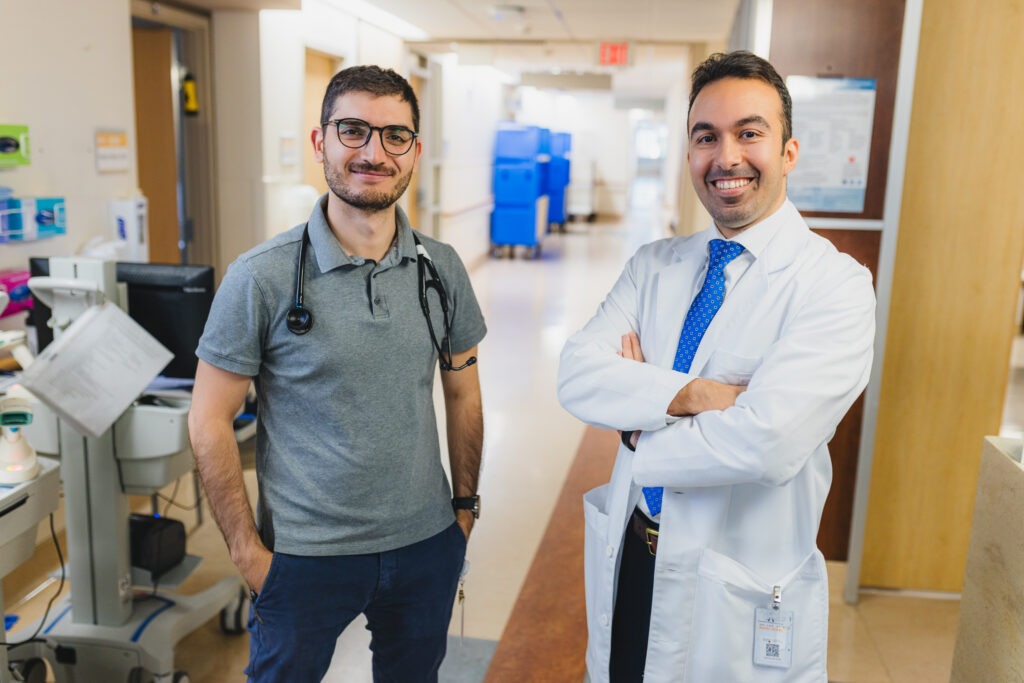
HHS launches innovative hospitalist training program
Academic hospitalist fellowship program
Hamilton Health Sciences (HHS) recently launched a training program for doctors wanting to specialize in hospitalist medicine. This academic hospitalist fellowship program, based at HHS’ Juravinski Hospital and Cancer Centre (JHCC), is among the first of its kind in Canada and positions HHS as a national leader in training doctors in this specialty.
This innovative new fellowship program was made possible through a collaboration between HHS, McMaster University’s Department of Medicine and the Postgraduate Medical Education Program in the Faculty of Health Sciences.
“If you’re a person who loves to pursue knowledge, the fellowship program is ideal.”
Dr. Soltan Abouzobeida is a highly experienced internal medicine specialist from the Middle East and a lifelong learner who wants to practise medicine in Canada. In July, he started the one-year academic hospitalist fellowship program at JHCC, which he hopes will help him achieve his goal of working in the Canadian hospital system.
The pathway for internationally-trained doctors to be licensed in Canada is complex and can take years. The hospitalist fellowship program can help internationally-trained doctors gain the Canadian work experience and connections needed to achieve their goal sooner, and with less red tape.
A great fit for experienced doctors
A Canadian citizen, Abouzobeida earned his medical degree in Saudi Arabia and worked there for over a decade as an internal medicine specialist.
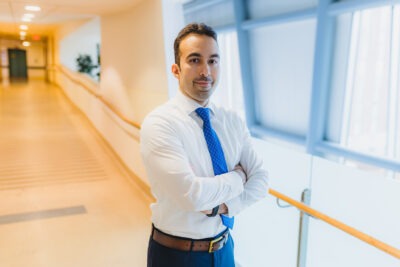
Dr. Soltan Abouzobeida, internal medicine specialist and academic hospitalist fellow.
“When I decided to try and qualify to work in Canada, I initially thought that I would need to redo my residency,” says Abouzobeida.
Residents are doctors in training, and are typically recent graduates of Canadian medical schools, while fellows, like Abouzobeida, are experienced doctors training in a specialty through a fellowship.
“It was almost impossible to get accepted into a residency program in Canada,” says Abouzobeida.
Fortunately another door opened with the launch of the academic hospitalist fellowship program at JHCC. Aimed at experienced internal medicine and family doctors who have trained in Canada or abroad, it was also a much better fit for Abouzobeida.
“If you’re a person who loves to pursue knowledge, the fellowship program is ideal,” says Abouzobeida. “It’s my second chance to be a student again, and it has been an amazing experience so far. Everyone has been very kind, welcoming and eager to share their knowledge.”
It’s also a win for JHCC, because hospitalist fellows are highly experienced doctors who, while here to learn, also share their expertise.
Up to eight doctors a year are accepted into the fellowship program, with five currently enrolled. Abouzobeida is one of two fellows funded by McMaster University. Both are Canadian citizens who earned their medical degrees in other countries. The other three hospitalists are from the Middle East, funded by Saudi Arabia, where they are returning after earning their certification to build hospitalist capacity there.
What is a hospitalist?
Hospitalists are doctors of internal or family medicine who work in hospitals, providing direct care to a wide range of patients from the time they’re admitted to the time they’re discharged. They have deep knowledge of conditions and diseases including cancer, blood diseases, lung infections and heart failure. They also help hospitals run more smoothly and efficiently through improved workflows from the time a patient is admitted until they’re discharged.

As an academic hospitalist fellow, Dr. Ali Abdullah provides direct care to a wide range of patients from the time they’re admitted to the time they’re discharged.
While hospitalists are fairly new in large Canadian teaching hospitals, they’ve been part of the American hospital system for more than 25 years.
Many health-care professionals consider hospitalist medicine to be the wave of the future for hospitals in Canada and around the world.
Ideal candidates
Those interested in the hospitalist fellowship program could include family doctors wanting to work in a hospital instead of private practice, since the training provides a great deal of hospital experience. It’s also ideal for internal medicine doctors wanting to focus on a specific area of care, such as oncology or hematology. The program is also appealing to internationally-trained doctors wanting to work in Canada or bring the hospitalist specialty back to their home country.

Dr. Haroon Yousuf, internal medicine specialist and hospitalist service’s lead.
“The Middle East recognizes that this is a growing field, so they want to expand their hospitalist system,” says Dr. Haroon Yousuf, an internal medicine specialist at JHCC and the hospitalist service’s lead. Yousuf’s role included getting the new hospitalist fellowship program up and running, and creating a division of hospital medicine within McMaster University’s department of medicine. He also runs the new, expanded hospitalist service at JHCC, which launched July 1. The fellowship program is part of this larger, expanded hospitalist service.
Creating opportunities for internationally-trained physicians
Helping internationally-trained doctors earn their credentials to work here is a huge motivator for Yousuf, who watched his physician mother struggle for years to practise medicine in Canada after immigrating. She eventually gave up due to years of insurmountable roadblocks and red tape.
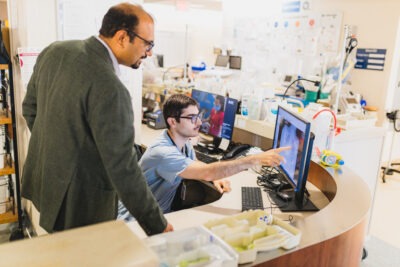
Dr. Haroon Yousuf, an internal medicine specialist at JHCC and the hospitalist service’s lead, and Dr. Ali Abdullah, an academic hospitalist fellow.
“It becomes a catch-22 for international doctors,” says Yousuf.
“As the son of an international medical graduate, I was exposed to the herculean struggle to attain medical licensure in Canada. The fact was, my mother was navigating a labyrinthine system with no roadmap for international medical graduates and intense competition for a paltry few residency spots. In the 27 years since then, little has changed for Canadian internal medicine graduates, except for the past few months.”
Recent positive changes include the new hospitalist fellowship program he leads. “As well as turning out certified hospitalists to work in hospitals locally, nationally and internationally, we’ve creating a pathway for internationally-trained doctors who want to relocate to Canada and practice medicine here,” says Yousuf.
“Through the hospitalist program, they gain valuable Canadian hospital experience. They make connections and new pathways that can help them reach their goal.”

